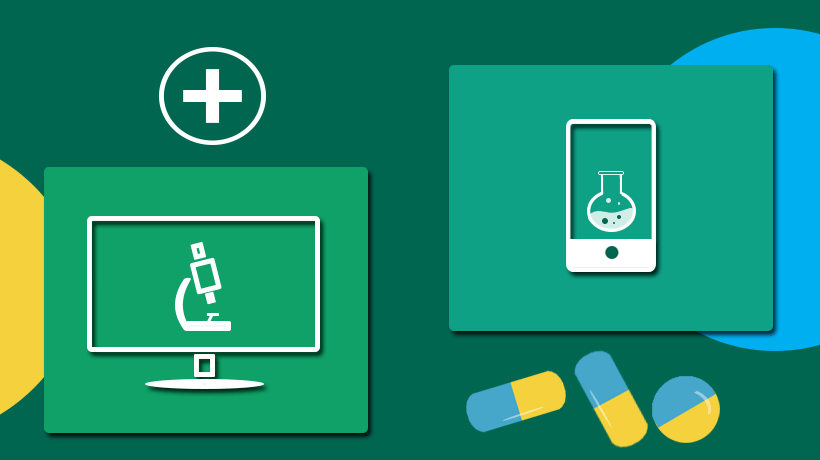Learning Management Systems For The Pharmaceutical Industry: Unique Requirements
The Pharmaceutical industry is one of the most regulated industries. Though the strict regulations are good news from the consumer’s point of view, overly strict ones are a challenge for businesses to upkeep. Training employees to comply with all relevant regulations is one of the biggest challenges faced by businesses. Corporation often require customized Learning Management System solutions to address these challenges in the Pharmaceutical and Medtech industries. Some actual figures on the cost of employing sales representatives and a comparison with the cost of training them from Merck Capital Ventures helps put in perspective the need for Learning Management Systems in the Pharma industry: With over 65,000 sales representatives in the United States, the pharmaceutical industry spends over $1 billion dollars in training. Of the billion dollars, over $150 million is spent on the training content and another $150 million alone on traveling costs of employees attending training sessions. In this article, we will discuss a few unique requirements of Learning Management Systems for the Pharmaceutical industry, from the employees’ and the business’ points of view.
Requirement For Training From An Employee’s Point Of View
In a study by Randstad USA, a staggering 51% of employees in the Biotech and Pharma industries are reported to be likely to seek out new employment within the next 6 months. Out of all industries polled, on an average, 44% of employees revealed that they would accept a better offer from a competitor, while in the Pharmaceutical industry the number was at 66%. One of the reasons cited was a lack of training and scope of career advancement, so much so that 34% of the employees cited this as the reason for seeking out new employers. This indicates that training employees so that they can keep their skill set growing using a Learning Management system is essential for employee retention in the Pharma industry.
Requirements From A Business Point Of View
- The types of training required for employees to work in the Pharmaceutical industry complying with the industry guidelines include environmental training, Standard Operating Procedure (SOP) training, Current Good Manufacturing Practices (CGMP) training, etc.
- Learning Management Systems for Pharmaceutical industry should also be compliant with protocols such as Installation Qualification, Operational Qualification (OQ), and Performance Qualification (PQ).
- Any Learning Management System implemented should be compliant with the FDA guidelines on electronic records and electronic signatures in the United States - Title 21 CFR Part 11 of the Code of Federal Regulations.
- Regulations are continuously evolving due to rapid changes in the industry which means that employee training is an ongoing process. The Learning Management System used to impart the training should have the ability to adapt and scale effortlessly to keep up with the changing demands for training.
- Due to extensive auditing requirements to fulfill compliance, Learning Management System reporting on employee training should be extensive.
- Ability to access courses on the go using any device on any platform, with particular focus on mobile devices.
The Importance Of Title 21 CFR Part 11
Title 21 CFR Part 11 of the Code of Federal Regulations (Wikipedia) has put forth regulation for electronic systems in part to secure electronic records and signatures similar to printed records and actual signatures.
Any Learning Management System used in a Pharmaceutical company must adhere to these FDA regulations. These regulations make it so that the Learning Management System regulations on its technical implementations are strictly tied to other procedures and policies in the company separate from the Learning Management System itself. Some of the regulations on the technical implementations of the Learning Management System include having a permanent audit trail of user actions within the system, having a digital version of user signatures for users authorized to perform critical operations, etc. and other general regulations of security of the systems and backups.
For e.g. Section 11.50 (a) states:
(a) Signed electronic records shall contain information associated with the signing that clearly indicates all of the following:
- The printed name of the signer;
- The date and time when the signature was executed; and
- The meaning (such as review, approval, responsibility, or authorship) associated with the signature.
(b) The items identified in paragraphs (a)(1), (a)(2), and (a)(3) of this section shall be subject to the same controls as for electronic records and shall be included as part of any human readable form of the electronic record (such as electronic display or printout).
And Section 11.70 (a) states:
Electronic signatures and handwritten signatures executed to electronic records shall be linked to their respective electronic records to ensure that the signatures cannot be excised, copied, or otherwise transferred to falsify an electronic record by ordinary means.
The pressing issue of these regulations being maintaining secure audit trails of all user action with proper attribution.
As discussed, Learning Management Systems for the Pharmaceutical industry have unique requirements, mostly in connection with the complex regulations the industry has to adhere to. It becomes prudent for companies to do extensive research before choosing the right Learning Management System for their requirements.









